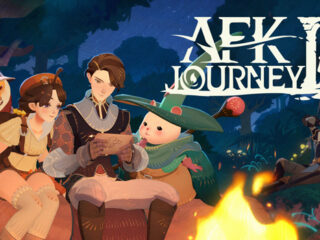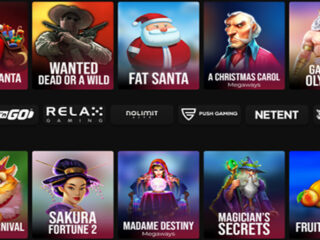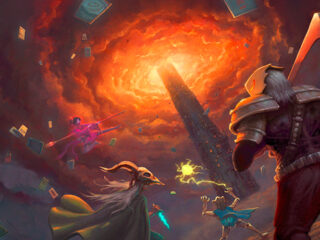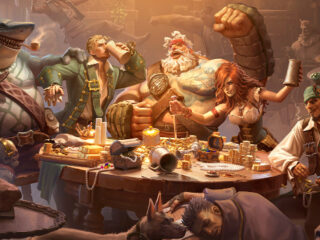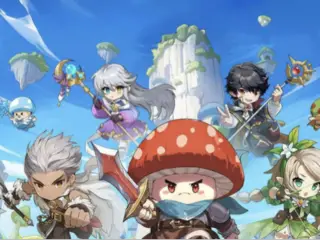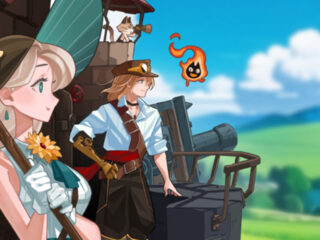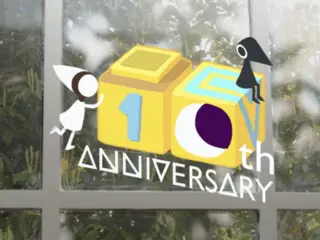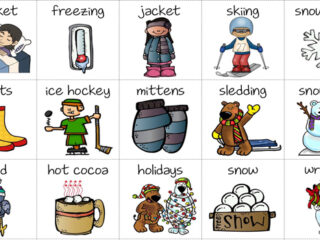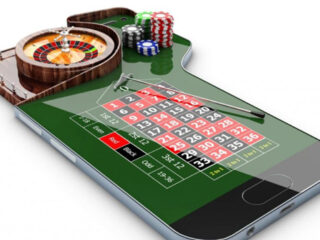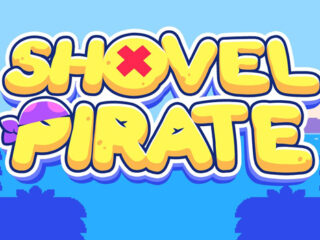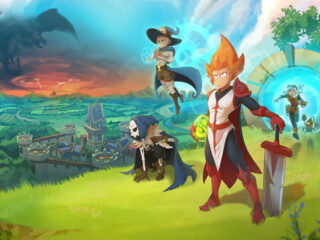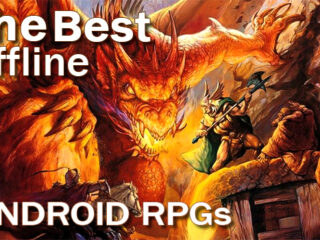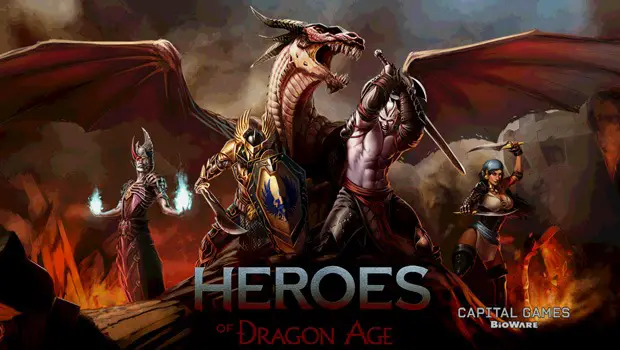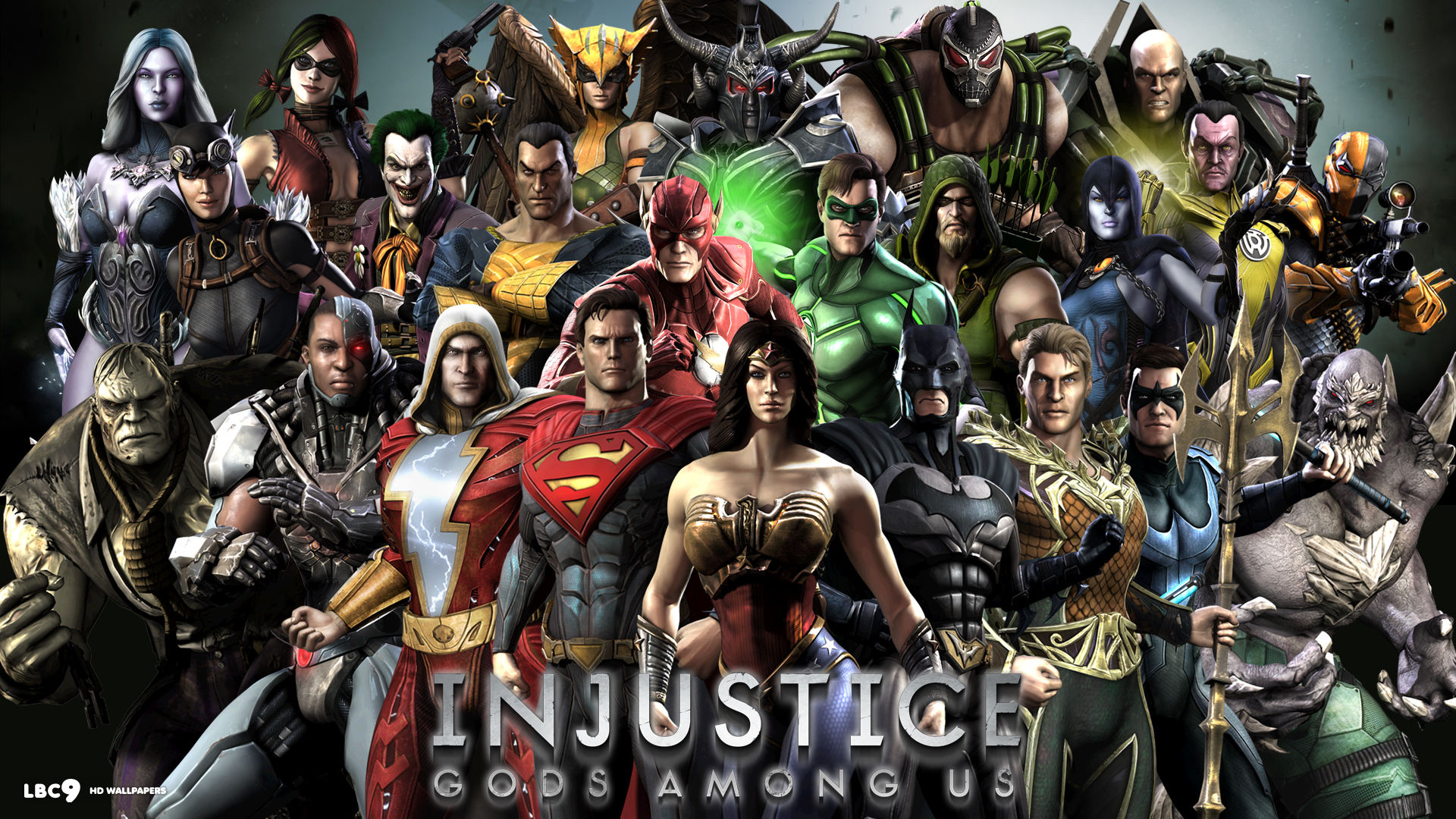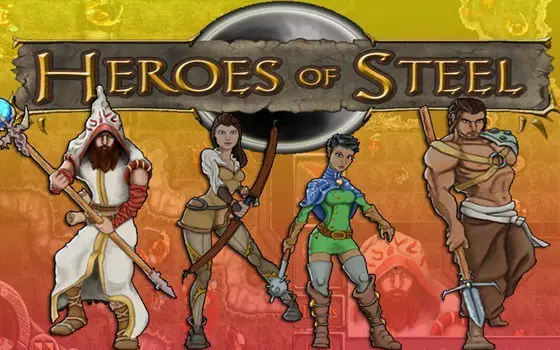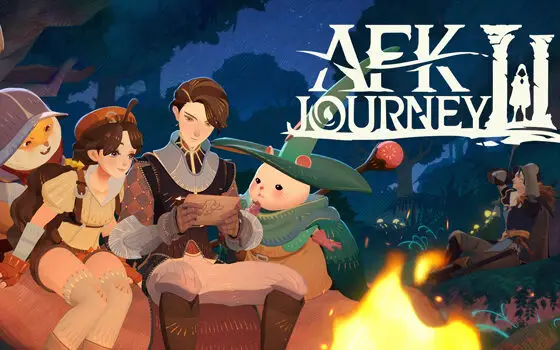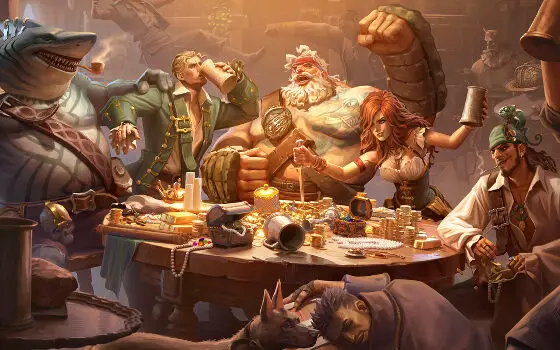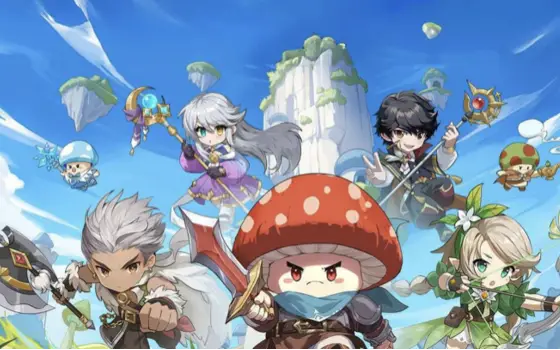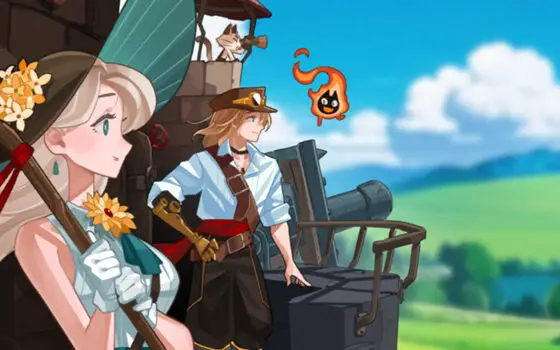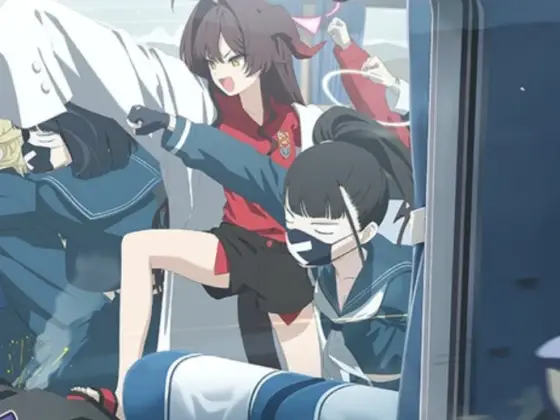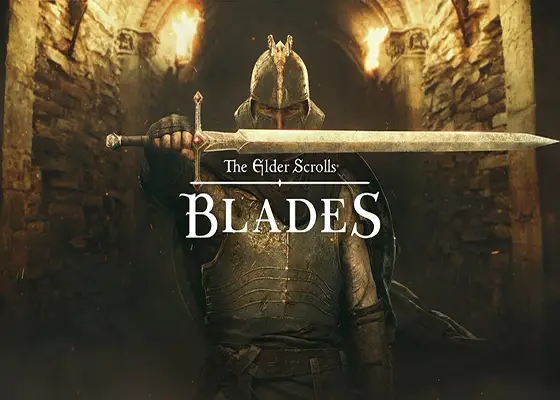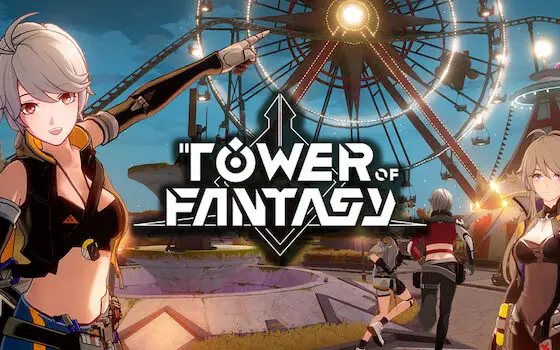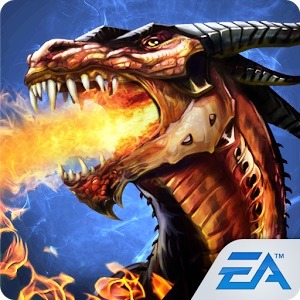 Few companies have fostered as much ill will in the gaming industry as EA. Their love of DLC and attempts to make used games a thing of the past rankled many. While they’ve given the gaming world some fantastic hits, there’s no doubt that at the top of the ladder sits an overlord concerned with money over quality product. Yet those underneath frequently toil and manage to provide their audience with solid, fun experiences. Usually I’m willing to overlook some cash-grabby tendencies if the game is fun enough. At first Heroes of Dragon Age was fun enough to overlook its freemium nature. Yet the further I got into the game, the more I began to feel that every flourish and adornment was baited with a rather brutal hook designed to catch on my wallet. The game is relatively simple in nature. Drawing on characters and creatures from the entire Dragon Age mythology you assemble a party and send them forth to do battle. The challenge comes in the planning stage. Units have different abilities and functions; some focus on a single enemy while others strike more broadly. A nimble rogue will hit faster than a brawny warrior, though to less effect. You’re not just limited to the heroes either. Want a party filled with darkspawn and backed up by a huge bewitched bear monster? Have at it. I even laughed when I found a nug (the pig analog of the Dragon Age universe) added to my roster. The game looks fantastic. A lot of attention was lavished onto the look of the entire experience. The various interfaces are filled with engrossing touches; while tinkering with your lineup, you’re not just swapping out names on a list or moving icons. Each character pops up in fully rendered detail. Backgrounds for various areas are diverse; the single player campaign sends you through various scenarios in the canon of the world; some familiar from the games and others that are more historical in nature. The music and sound effects only serve to drive the hook deeper; everything about this game just makes you want to play it more.
Few companies have fostered as much ill will in the gaming industry as EA. Their love of DLC and attempts to make used games a thing of the past rankled many. While they’ve given the gaming world some fantastic hits, there’s no doubt that at the top of the ladder sits an overlord concerned with money over quality product. Yet those underneath frequently toil and manage to provide their audience with solid, fun experiences. Usually I’m willing to overlook some cash-grabby tendencies if the game is fun enough. At first Heroes of Dragon Age was fun enough to overlook its freemium nature. Yet the further I got into the game, the more I began to feel that every flourish and adornment was baited with a rather brutal hook designed to catch on my wallet. The game is relatively simple in nature. Drawing on characters and creatures from the entire Dragon Age mythology you assemble a party and send them forth to do battle. The challenge comes in the planning stage. Units have different abilities and functions; some focus on a single enemy while others strike more broadly. A nimble rogue will hit faster than a brawny warrior, though to less effect. You’re not just limited to the heroes either. Want a party filled with darkspawn and backed up by a huge bewitched bear monster? Have at it. I even laughed when I found a nug (the pig analog of the Dragon Age universe) added to my roster. The game looks fantastic. A lot of attention was lavished onto the look of the entire experience. The various interfaces are filled with engrossing touches; while tinkering with your lineup, you’re not just swapping out names on a list or moving icons. Each character pops up in fully rendered detail. Backgrounds for various areas are diverse; the single player campaign sends you through various scenarios in the canon of the world; some familiar from the games and others that are more historical in nature. The music and sound effects only serve to drive the hook deeper; everything about this game just makes you want to play it more. 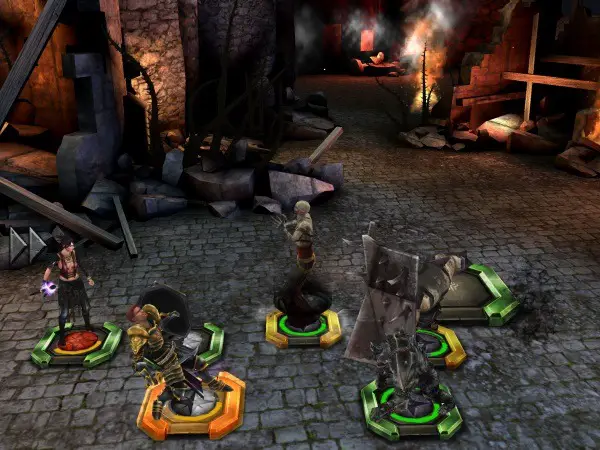 Even the way you accumulate characters is addictive. Much like titles like InMobi’s Blood Brothers, winning battles earns you gold which can be used to purchase more creatures. If you’ve ever collected baseball cards or played a collectible card game, you’ll be familiar with the experience; the frisson of tension and uncertainty as you tear open the booster pack, hoping for a gem amidst the dross. The characters are presented more as figurines than cards, which makes the experience a touch more fun and immersive. When you shell out your gold you have the choice of paying a bit more and being guaranteed a slightly better creature, but with either option there’s a chance you’ll get more than what you paid for. I have a BA in psychology and there’s been exhaustive research done on what’s the most addictive ‘reinforcement schedule’. As it turns out, the best way to get someone to keep doing something is the promise that eventually, they will win. This is the appeal of slot machines and scratch-off lottery tickets. In theory with an infinite supply of time and money, you will win the jackpot. It’s extremely disheartening to see such a flagrantly abusive method nested in a video game. Now keep in mind it is entirely possible to play through the game without spending a single penny. The download is free and you’ll accumulate gold by just playing story missions and competing in the PVP ladder. Yet once again the game specifically aims you in the direction of their store. Each battle whether in the campaign or PVP mode costs a single unit on a resource bar (there’s a separate bar for each option). The resources regenerate over time, but the further you get into the game, the less adequate that rate of regeneration is. The first few sets of missions are a breeze; you’ll quickly blast through them and gleefully watch your units rise in strength. Eventually the game runs you into a familiar wall; the sort we usually associate with lengthy RPGs wherein no clever manipulation will afford you victory. So it’s off to the grind. Unfortunately around this point leveling up requires a lot of battles. Here’s where the freemium model truly begins to leer its hideous grin at you. One method of gaining more time is spending ‘gems’ to refill one of your resource bars. The gems are used for two things; buying more opportunities to battle or buying a unit at a guaranteed high level of rarity. The game does mete out a number of gems naturally but at such a glacial pace that it’s almost laughable. This is when you begin to eye your wallet. Despite the care given to making a relatively authentic Dragon Age experience, the deliberately slow-paced setup makes it obvious that the game is aimed at drawing core gamers into the lucrative, freemium web. Gamers love playing new and different games featuring franchises and characters they’ve come to love and EA is trying to leverage this to pull in as much money as possible by overlaying a familiar universe on top of a gaming style that has already been proved to be successful by a plethora of similar games. The phrase “caveat emptor” springs to mind- beware of anything that a big company with a spotty history puts out for free.
Even the way you accumulate characters is addictive. Much like titles like InMobi’s Blood Brothers, winning battles earns you gold which can be used to purchase more creatures. If you’ve ever collected baseball cards or played a collectible card game, you’ll be familiar with the experience; the frisson of tension and uncertainty as you tear open the booster pack, hoping for a gem amidst the dross. The characters are presented more as figurines than cards, which makes the experience a touch more fun and immersive. When you shell out your gold you have the choice of paying a bit more and being guaranteed a slightly better creature, but with either option there’s a chance you’ll get more than what you paid for. I have a BA in psychology and there’s been exhaustive research done on what’s the most addictive ‘reinforcement schedule’. As it turns out, the best way to get someone to keep doing something is the promise that eventually, they will win. This is the appeal of slot machines and scratch-off lottery tickets. In theory with an infinite supply of time and money, you will win the jackpot. It’s extremely disheartening to see such a flagrantly abusive method nested in a video game. Now keep in mind it is entirely possible to play through the game without spending a single penny. The download is free and you’ll accumulate gold by just playing story missions and competing in the PVP ladder. Yet once again the game specifically aims you in the direction of their store. Each battle whether in the campaign or PVP mode costs a single unit on a resource bar (there’s a separate bar for each option). The resources regenerate over time, but the further you get into the game, the less adequate that rate of regeneration is. The first few sets of missions are a breeze; you’ll quickly blast through them and gleefully watch your units rise in strength. Eventually the game runs you into a familiar wall; the sort we usually associate with lengthy RPGs wherein no clever manipulation will afford you victory. So it’s off to the grind. Unfortunately around this point leveling up requires a lot of battles. Here’s where the freemium model truly begins to leer its hideous grin at you. One method of gaining more time is spending ‘gems’ to refill one of your resource bars. The gems are used for two things; buying more opportunities to battle or buying a unit at a guaranteed high level of rarity. The game does mete out a number of gems naturally but at such a glacial pace that it’s almost laughable. This is when you begin to eye your wallet. Despite the care given to making a relatively authentic Dragon Age experience, the deliberately slow-paced setup makes it obvious that the game is aimed at drawing core gamers into the lucrative, freemium web. Gamers love playing new and different games featuring franchises and characters they’ve come to love and EA is trying to leverage this to pull in as much money as possible by overlaying a familiar universe on top of a gaming style that has already been proved to be successful by a plethora of similar games. The phrase “caveat emptor” springs to mind- beware of anything that a big company with a spotty history puts out for free. 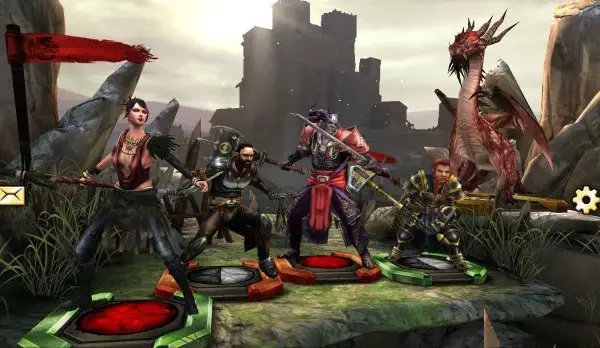 The store is deviously simple; gems are the only thing you can buy, aside from a one-time offer to purchase a guaranteed epic character when you first launch the game. In the interest of a fully balanced review I spent around ten dollars on gems to see how far that would get me. It turns out, it doesn’t get you very far at all. I blew through all the gems in two days and failed to complete even 50% of the main story content. Yes, it is entirely possible to never even open the store and complete this game, but it’s going to take so long that anyone but the most dedicated Dragon Age fan will lose interest and migrate on to a better experience. If you’re feeling the need for an RPG fix and start eyeing Heroes of Dragon Age, don’t bother. Look for a better game, because they’re a dime a dozen.
The store is deviously simple; gems are the only thing you can buy, aside from a one-time offer to purchase a guaranteed epic character when you first launch the game. In the interest of a fully balanced review I spent around ten dollars on gems to see how far that would get me. It turns out, it doesn’t get you very far at all. I blew through all the gems in two days and failed to complete even 50% of the main story content. Yes, it is entirely possible to never even open the store and complete this game, but it’s going to take so long that anyone but the most dedicated Dragon Age fan will lose interest and migrate on to a better experience. If you’re feeling the need for an RPG fix and start eyeing Heroes of Dragon Age, don’t bother. Look for a better game, because they’re a dime a dozen.
Hardcore?
No.
A truly engrossing experience is completely ruined by the greed of the freemium model.


